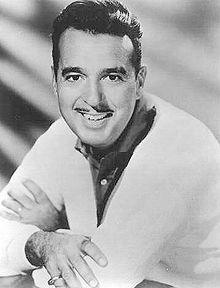

Virginia Intermont plans to maintain the Tennessee Ernie Ford Collection and make it available for research and viewing by academic professionals, historians and music lovers.
BRISTOL, VA -- Bristol's "Ol' Pea-Picker" passed away in 1991, but news came this week that his collection will be making its final home in Bristol.
The Tennessee Ernie Ford Collection has been in the archives of the University of Mississippi's McCain Library in Hattiesburg and was transferred this week to a permanent home at Virginia Intermont College.
V.I. President Dr. Michael Puglisi traveled to Mississippi with an 18-foot moving truck to receive 20 file cabinets of memorabilia that will become an invaluable addition to Bristol's ever-growing music infrastructure.
"When Southern Mississippi decided they wanted to find a more appropriate home for the collection, they contacted us," Puglisi said. "Because of Ernie's connection to the College and Bristol – his hometown and the Birthplace of Country Music, we were thrilled to be able to bring this special collection home."
The question might be asked, "How did the collection make its way to Mississippi?" Upon Ford's death in 1991, his music director Lloyd Wells, donated the collection to Southern Mississippi. Wells is an alumnus of the university. The Tennessee Ernie Ford Music Scholarship Fund was established that remains to this day.
According to Jay Dean, director of orchestral activities at Southern Mississippi, "This collection needs to be in the hands of people who value its history, understand its worth and will take care of it and protect it."
He further stated, "For very logical reasons, the Bristol area is the most logical place for this material: it is a part of your history."
The files have not been reviewed, but they were indexed by either the university or the prior owner. It is known that there are priceless records in these files, including the original score of "Sixteen Tons," the song that made Ford nationally known overnight. There are his published and unpublished scores, records of his Colgate & Kodak television specials, Scripts, Recordings, etc according to the labels on the black file cabinets. This collection will, no doubt, be an invaluable resource for the way we see our cultural heritage, as well as a resource for marketing the tourism and music industry in Bristol.
Ernie Ford, best known for the unexpected pop hit "Sixteen Tons" in 1955, is not just part of Bristol's history; he is part of V.I.'s history. After he graduated from Tennessee High School, he took private music lessons at V.I., and his teacher and her husband helped him break into radio as an announcer on WOPI radio in Bristol. Ford eventually left radio to study classical music and voice at the Cincinnati Conservatory of Music and then served in World War II. After the war he went back into radio, creating the character "Tennessee Ernie" to differentiate himself while on the air in San Bernardino, California. He earned the nickname "The Ol' Pea-Picker" due to his catch-phrase, "Bless your pea-pickin' heart!" He began using the term during his disc jockey days at KXLA.
Ford helmed his own primetime variety program, "The Ford Show," which ran on NBC from 1956 to 1961. The program was notable for the inclusion of a religious song at the end of every program, despite objections from the network. From 1962 to 1965 he also hosted a daytime talk show from KGO-TV in San Francisco, broadcast over the ABC television network. By 1961, he had earned three stars on the Hollywood Walk of Fame – one for radio, one for television and another for records. He was presented the Medal of Freedom by President Reagan in 1984 and was inducted into the Country Music Hall of Fame in 1990. He was added posthumously to the Gospel Music Hall of Fame in 1994. Many fans will remember his regular appearances on television shows, such as his part as "Cousin Ernie" on I Love Lucy and his appearances with his old friends, Minnie Pearl and Dinah Shore. Many in the Bristol area will also remember his short-lived restaurant in Bristol on the Blountville Highway, now West State Street.
Virginia Intermont plans to maintain this historic collection in the J.F. Hicks Library and make it available for research and viewing by academic professionals, historians and music lovers.